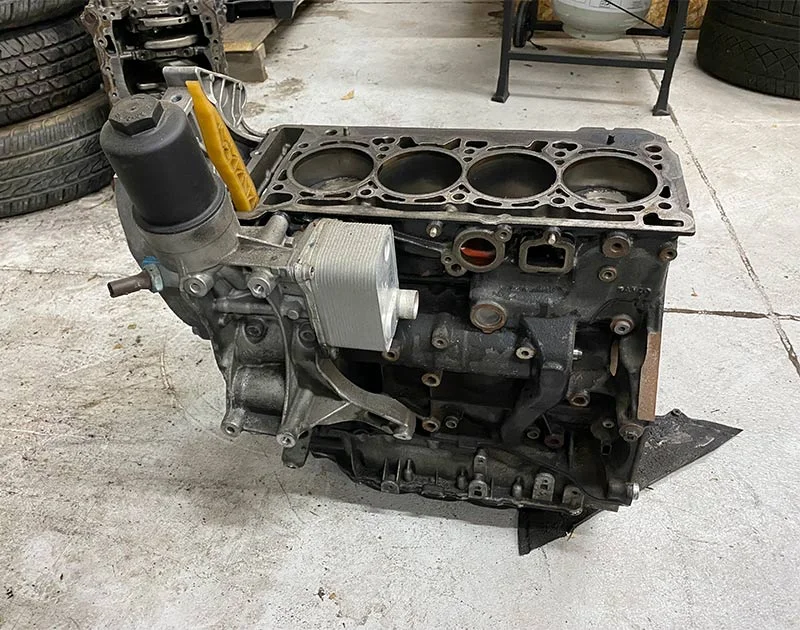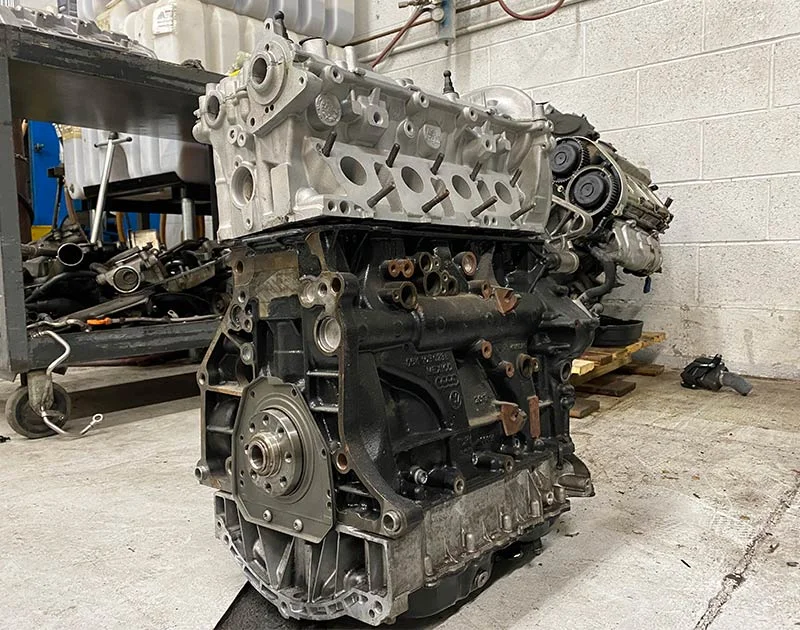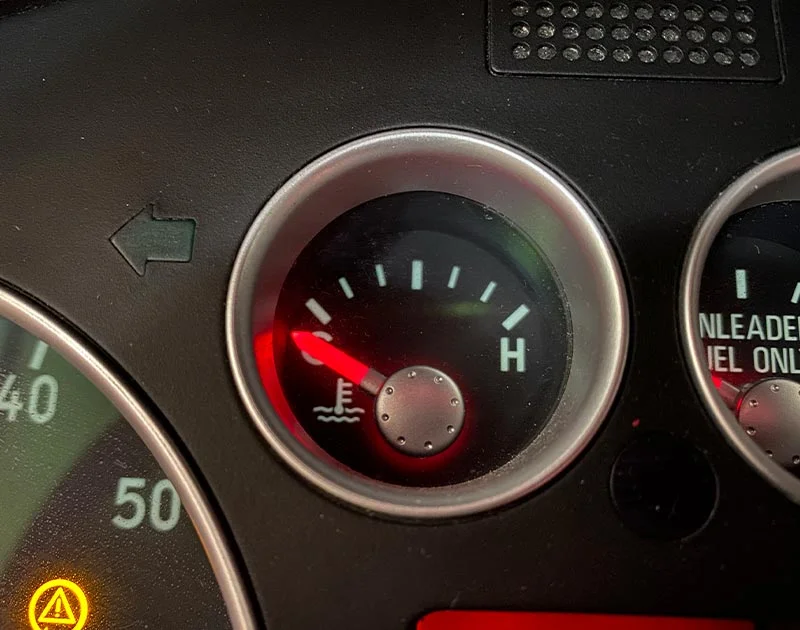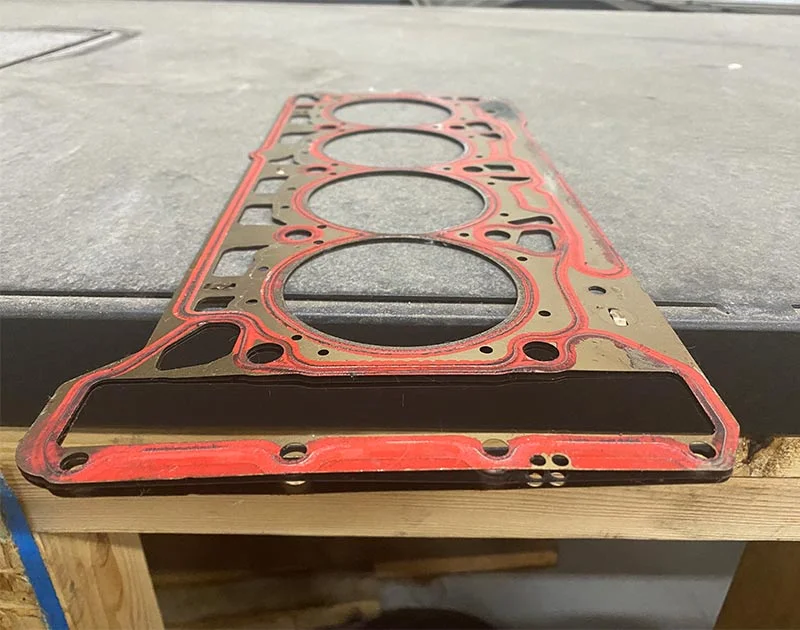What Causes a Blown Head Gasket?
Maybe you see some white smoke coming out of the tailpipe while you drive, or maybe your car feels a bit sluggish or underpowered. You bring your car to a repair shop and the service advisor says you have a blown head gasket. Most people know the head gasket is an important component in their vehicle’s engine, but not as many understand exactly what it does and what causes it to fail. Read on to learn more about the function of the head gasket, and why it’s such a serious issue when it blows.
What does the head gasket do?
Your engine is divided into two parts. The bottom end, which contains the crankshaft, pistons, connecting rods, and oil pump. These components live in the engine block, and their movement provides power and torque to the transmission and eventually, the wheels.

The cylinder head is the “top half” of the engine. The head contains the valves, camshaft(s), spark plugs, as well as the ports allowing fresh air into the engine and exhaust out of it. The valves and spark plugs work to create the combustion needed to drive your car.

The head gasket is the barrier that sits between the bottom end of the motor and the cylinder head. Its job is to seal the combustion happening in each cylinder and maintain compression. Additionally, the head gasket prevents oil and coolant from mixing. It serves as a barrier between the coolant channels that run through the engine block, and the oil contained in the rotating assembly.

What causes a head gasket to fail?
In general, head gaskets are pretty robust and, in most cases, last well over 100,000 miles. That being said, some conditions can cause premature head gasket failure.
Overheating
Engine overheating is one of the most common causes of a blown head gasket. When the engine gets too hot, the gasket is exposed to temperatures outside of what it is meant to handle. Extreme heat can cause failure. Overheating can also cause warping or cracking in the cylinder head or engine block, preventing the head gasket from sealing correctly.
Pre-ignition and detonation
Both pre-ignition and detonation can cause premature head gasket failure. Both of these conditions result in high heat and pressure in the cylinder, putting extreme stress on the gasket, not to mention the pistons and valves. Remember that pre-ignition occurs before the spark plug fires, and detonation occurs after.
Abrupt temperature changes
The head gasket expands and contracts depending on the temperature of the engine. If you start your engine cold and immediately put your foot down, the shock of the abrupt temperature change can cause a head gasket failure. This is similar to how pouring boiling water into glass can cause it to experience heat shock and crack. Allowing your car to get up to proper operating temperature before aggressive acceleration will help prevent head gasket failure.

High mileage and age
Gaskets wear out. A car that has significant mileage on it without ever having a head gasket replacement may run into issues. Age can cause the materials in the gasket to break down and not seal as well as they used to. Manufacturers prescribe a head gasket replacement once a car hits a certain mileage point. If you are over that mileage, you are at higher risk of head gasket failure.
Incorrect installation
If the head gasket was replaced incorrectly, it’s unlikely to hold a seal for long if it ever does at all. If you had a head gasket replaced but ran into issues quickly after the service, there may have been an issue with the installation.

Signs of a blown head gasket
Depending on the severity, the symptoms of a failed head gasket can vary.
Coolant and oil leaks
Oil and coolant leaks are common issues on many vehicles. Just because you see a leak doesn’t mean you have a blown head gasket. If you see the majority of the oil or coolant seeping out from the engine block though, it could be an indication that the head gasket is no longer maintaining a seal.
Misfiring
A blown head gasket no longer keeps coolant passages sealed off from the cylinders. This results in coolant entering the cylinder chamber, skewing the air/fuel ratio, and causing a misfire. Your car will likely throw a check engine light code relating to this misfire.
White exhaust smoke and water vapor
White smoke or water vapor exiting the tailpipe is another indicator of a head gasket leak. Coolant that enters the cylinder and burns will appear white on its way out of the vehicle’s exhaust. You also may notice a slight sweet smell from this smoke, as coolant produces a sugary odor when burned. Water vapor may also be present.
While small amounts of vapor from your exhaust on a cold morning are normal, large plumes of white smoke generally mean you have a more serious issue in your engine (often the head gasket).
Overheating (again)
While overheating can cause a blown head gasket, it can also be a symptom. Of course, allowing overheating to linger as a problem can and will cause irreparable damage to other parts of your engine or transmission. Do not drive an overheating vehicle.
White/milky oil
If you notice your oil has a milky color, it’s a good indicator that coolant has entered areas of the engine it’s not supposed to be. The most common cause of this is a failed head gasket. If you suspect a failed or failing head gasket, take a look at your dipstick or underneath the oil cap for signs of contamination. The oil that is mixed with coolant is not as effective at lubricating the moving parts in your engine.
Can I fix a blown head gasket myself?
Probably not. Replacing a head gasket is an extremely in-depth repair that requires the removal of the cylinder head. For the average person, the complexity of this service is time-consuming and leaves a lot of room for error. Unless you are an ex-technician or a very experienced do-it-yourselfer with the proper space and tools, your best bet is to tow your car to a garage.
Can I drive with a blown head gasket?
No, you should not drive if you believe your head gasket has failed. You could cause significant damage that could quickly turn a head gasket replacement into an engine replacement.
Head gasket replacement at Becker Service Center
The team at Becker Service Center has the skills and knowledge to replace your blown head gasket. We will ensure the repair is done right the first time, restoring the seal between the block and cylinder head, and protecting your engine. Give us a call or schedule an appointment at our Naperville repair shop today!